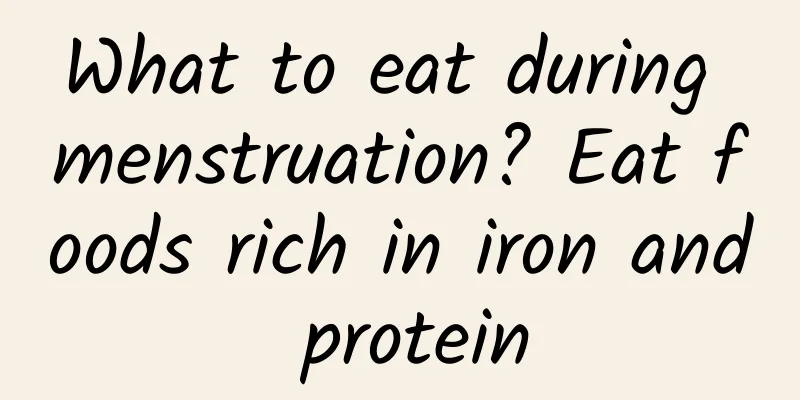Love text? Golden Glory? Jade text? I love eating mangoes but I’m afraid of getting fat. Which one has lower calories?

|
The mango season is here, and different varieties of mangoes are in production one after another, including local mango, Aiwen, Jinhuang and Yuwen. Which one do you like best? Perhaps for most people, the variety doesn’t matter, as long as it’s mango, it tastes good. Little do people know that even though they are all mangoes, different varieties still have different calories, and the vitamin A content can even differ by 7 times. Do you want to know how to eat it with less burden on your health? Keep reading! There are many varieties of mangoes grown in Taiwan. Some are particularly sweet, while others have particularly delicate flesh. Each has its own characteristics. From a nutritional point of view, their nutritional composition also varies. A comparison of the calories in common mangoes. Guess which one has higher calories? Taking calories, which is the biggest concern for people who want to lose weight, as an example, according to the "Taiwan Food Composition Database 2017 Edition" of the Food and Drug Administration, among the six common mangoes in Taiwan, the black fragrant mango has the highest calorie content, with 66 calories per 100 grams of edible part. The next highest calorie content is the fragrant mango (Taiwan No. 1), which has 65 calories, the jade mango has 62 calories, the native mango has 54 calories, the golden mango has 52 calories, and the Aiwen mango has 42 calories. Although the calorie difference between different mango varieties is not big, a little bit adds up and it is still a reference for those who need to be very careful about calories when losing weight. There are many varieties of mangoes grown in Taiwan, some of which are particularly sweet, while others have particularly delicate flesh, each with its own characteristics. Eat mangoes without getting fat - control the amount and avoid processing Hou Wenyi, director of the nutrition department of St. Martin's Hospital, said that if you love eating mangoes but are afraid of getting fat, in addition to choosing relatively low-calorie varieties, it is more important to develop a habit of balanced eating and control the daily fruit intake to 2 to 4 servings, each serving is about 100 grams, which is equivalent to 70% full of an average rice bowl. In particular, patients with diabetes and the three high diseases should pay special attention to "not overdoing it" to prevent excessive sugar from being converted into fat and accumulated in the body, increasing the body's metabolic burden. In addition, when consuming mangoes, focus on fresh mangoes or mango juice with less processing, and avoid consuming processed mango products with added refined sugar or cream, so as to avoid consuming too many calories, which will increase the risk of obesity and metabolic syndrome. People who are prone to pigmentation and yellow skin when consuming vitamin A should pay special attention to portion control when consuming mangoes. The vitamin A content in mangoes varies greatly. Which one is better for the eyes? It is worth noting that in addition to being low in calories, mangoes also have the advantages of being high in fiber to aid bowel movements and rich in vitamin C to aid beauty. But what you may not know is that the orange flesh is actually rich in vitamin A, and the content varies greatly between different varieties! According to the Taiwan Food Composition Database, among the six common mangoes, the black mango has the highest amount of vitamin A, containing 2239 IU of vitamin A per 100 grams, which is more than 7 times the 303 IU of the Jade Mango. Since vitamin A can protect night vision, promote skin health and maintain normal immune system function, if you want to supplement vitamin A through mangoes, you can give priority to black mangoes. However, will eating too many mangoes cause vitamin A poisoning? Nutritionist Hou Wenyi said that vitamin A mainly consists of two components: retinol and beta-carotene. If too much vitamin A is consumed from animal foods, it may indeed cause poisoning reactions. However, since the average vitamin A content of every 100 grams of mango is only 1865 IU, and more than 60% is plant-based beta-carotene, after unit conversion and compared with the upper limit of the reference intake of dietary nutrients for Chinese people, as long as people eat normally, they don't have to worry about poisoning caused by overeating. What is more noteworthy is that some people have special physical constitutions, and if they eat a little more vitamin A, they are prone to pigmentation and yellowing of the skin. If you have such doubts, don’t forget to carefully control the portion when enjoying the delicious mango! |
Recommend
Will using belly button patches to slim you down? Chinese medicine doctor Zhang Wenxin: These 3 "lazy weight loss methods" are safer and more effective
Recently, a kind of "belly button patch"...
What to eat to accelerate the growth of uterine fibroids What to eat to accelerate the growth of uterine fibroids
What to eat to accelerate the growth of uterine f...
How long will the perimenopausal holiday last?
Clinically, menstruation refers to menstruation, ...
How to treat Bartholinitis
The main cause of Bartholinitis comes from sexual...
Threatened abortion specialist hospital
Everyone is very aware of the seriousness of thre...
Learn about some of the most common symptoms of vaginitis
Vaginitis is actually the most common gynecologic...
How much does it cost to treat endometrial thickening?
How much does it cost to treat thick endometrium?...
What is the reason why you are also a victim of vulvar leukoplakia?
With the development of society, more and more pa...
It’s easy to lose weight in winter, and these five types of food can improve your metabolism! Nutritionist Zheng Xiuqing: Eating the right nutrients is the best
I often hear women over 40 sighing that they have...
What kind of examination should be conducted to prevent cervical hypertrophy?
The examination of cervical hypertrophy is genera...
How exercise can eliminate adnexitis
Adnexitis is a common inflammatory disease in wom...
What are the causes of irregular menstruation?
What are the causes of irregular menstruation? Co...
Which hospital should I go to for examination of hyperprolactinemia?
Which hospital should I go to for hyperprolactine...
Why is my vulva itchy and painful?
Why is my vulva itchy and painful? Vulvar itching...
Just can’t lose weight? It turns out that anemia affects metabolism.
Can’t lose weight no matter what you do? Be caref...









